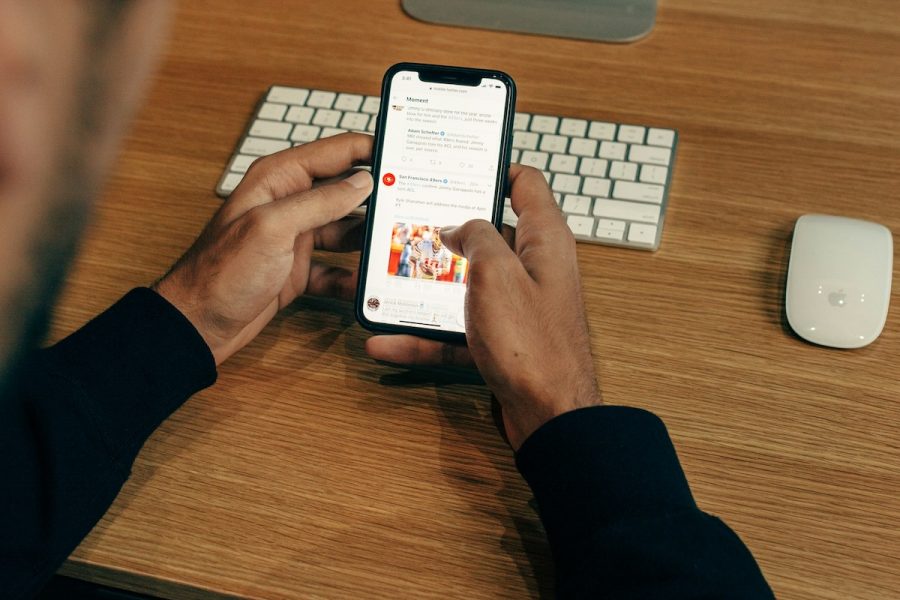Bernard Moon is cofounder and general partner at SparkLabs Global Ventures, a new global seed-stage fund, and cofounder of SparkLabs, a startup accelerator in Seoul, Korea.
Twenty years ago, I was working on a consulting project for the City of St. Louis during my Coro Fellowship, a public service leadership program. The community had just received an Enterprise Community Zone grant to improve the quality of life in certain poverty-stricken areas. Some of the grant money was allocated to build a “community information network” where people could access city and nonprofit resources.
The network was core to the grant’s vision, because many of the residents of the impoverished neighborhoods had no knowledge of the basic services available.
I thought that the Internet could serve as a great equalizer, granting access to previously unknown information. That was my first encounter with the intersection of Internet and public policy, as well as the project that led to my becoming a startup entrepreneur. It was also the first time I’d thought seriously about the digital divide within our nation and the world.
Connecting The Disconnected
A lot has changed since 1995. During 2000, 48% of American’s did not have Internet access while a recent Pew survey revealed that it now stands at 15%. Within this 15%, 19% of this group citing cost as a reason, so the digital divide has significantly decreased within the U.S.
On the flipside, the Internet has grown and changed beyond a provider of information to a nexus between many of the critical components in our lives. The Internet has become a platform for bridging friends, families, commerce, employment and so many other functions that we take for granted now.
When you take a step back and look beyond the U.S., more than two-thirds of the world’s population does not have Internet access. The World Bank’s research estimates that poverty hits 700 million people in our world, which is defined as $1.90 a day or less, or 9.6% of the global population. Also 1.2 billion people (22%) live on less than $1.25 a day, and among these people just under half have electricity.
When hearing about the importance for how basic needs must first be met, I personally went through a period of ignoring the importance of technology as a tool to fight poverty. Why would a person care about the Internet when they can’t even eat everyday? Shouldn’t shoes come first before data plans?
Of course these weren’t the people living in poverty speaking, but the assumptions that some of us held. Now there have been various studies that reveal basic needs are not what concerned those in poverty but the feelings of shame, lack of esteem, and being disenfranchised.
The Would-Be Solutions That Matter
The Internet is not an end-all solution, but it can be a powerful tool towards providing empowerment and self-esteem. Today’s Internet provides both knowledge and connectivity to a greater community. Knowledge is power and gaining social and professional networks is even more powerful.
The following are some of the projects and companies cultivated in Silicon Valley, some of which have gotten press. I tend to think of them as nice “science projects” and forget the incredible impact they can make in people’s lives, if they succeed.
Google X’s Project Loon. Project Loon seeks to connect the two-thirds of the world’s population to the Internet by balloons. It is an ambitious project to fill the gap for those especially in rural and remote areas of the globe. Their balloons float around the stratosphere, which is an area twice as high where airplanes fly and avoids damaging weather.
Facebook’s Internet.org. Internet.org also seeks to connect the two-thirds without Internet access. Through Free Basics by Facebook, people can access certain websites without data charges, such as news, education, health and employment information.
Stellar. Stellar is a nonprofit seeking to build an open, common financial platform for the unbanked, which currently stands at 2 billion. Joyce Kim, cofounder and executive director, wants to create a financial system for the world’s poor.
She explained to me, “Financial services (the ability to save, send or borrow money) may not be considered a basic human right, but people need financial services to be able to pay for education or healthcare. The ability to save is critical to a mother’s ability to take her family out of poverty, especially if she is one of the 2 billion people living on less than $2 a day. The cost to create basic infrastructure is too high for poor communities and affordable services are lacking. And this is exactly where Silicon Valley can help bridge the gap.”
Stellar is an important platform that needs to be built concurrently with increased online access in the fight against poverty.
Oolu. Oolu, from Y Combinator’s recent class, aims to bring affordable solar energy to the 150 million people in West Africa living without electricity. They provide three solar-powered lights and two USB plugs powered by a battery. More importantly, Oolu has a relationship with Orange Money that provides a distribution and payment model for its services.
Regardless of their dual intent, the urgency of bringing people in poverty to the online world cannot be understated. Such projects should not be limited to Google and Facebook.
Startups such as Stellar and Oolu are not feel-good attempts to rub entitled Silicon Valley entrepreneurs’ egos. These are mission-driven companies that should be supported and provide encouragement for the next wave of entrepreneurs in Silicon Valley and across the globe—but especially from Silicon Valley, since there is such a strong concentration of innovators, disruptors and world-class engineers.
I asked Sam Altman, president of Y Combinator, why it decided to take nonprofit candidates? He replied, “We decided to start funding nonprofits because we hope we can help change the ecosystem for nonprofits as much as we have for for-profit startups. The current situation may be even more broken.”
This is what entrepreneurs and innovators do. Fix what is broken, make things more efficient and improve overall systems.
I’m all for people building the next Facebook (yes, please email me your pitch decks) and Google’s self-driving cars filling our roadways, but there should also be more initiatives to bridge the gap between the haves and have nots, and new technologies to improve our society as a whole.
As I learned, seeking change is not binary, nor are our lives. Or least our lives don’t have to be. Don’t wait to change the world after you make your millions, hit the C-level of a Fortune 500 company, or are living comfortably your overpriced Bay Area home. You can take small steps to change the world while building your career at a big company or a startup while still caring for those around you whether your neighbor next door or a person halfway around the world.
Photo of view from Project Loon courtesy of Google










